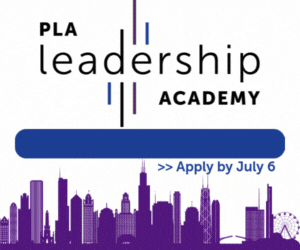Check Out a Library Hotspot
If you are a library patron lacking Internet in your home, have no fear—many public libraries across the country are teaming up with cell phone providers like Sprint and Verizon to offer library hotspots for checkout. These hotspot devices can be checked out for an allotted period of time designated by participating public libraries. Unsure about what a hotspot is? Well, the Chicago Public Library has defined a library Wi-Fi hotspot as “a device you can use to connect a mobile-enabled device, such as a laptop, smartphone or tablet, to the Internet. The hotspot is portable, so you can connect your device almost wherever you are, like at home, on the bus or in the park.”[1] In a world filled with endless technology, public libraries once again prove that they can continue being relevant in a world deeply embedded in a technological revolution that once “threatened” to put public libraries out of business for good.
Whether you may be aware or not, there is a digital literacy divide that exists. It is often assumed that everybody has access to the Internet or to a computer; however, that could not be further from the truth. Brooklyn Public Library has found that “according to a 2013 report from the New York City’s Comptroller’s Office entitled ‘Bridging the Digital Literacy Divide,’ 26.7 percent of households do not subscribe to high-speed Internet service.”[2] Those numbers are much higher in areas across the United States that are considered low-income and impoverished. This puts families who do not have access to the Internet in their home at a disadvantage. Given that digital literacy is seemingly universally accepted in this digital age, lacking technology skills can seriously hinder one’s ability to simply keep up. Many schools have gone as far as allowing their students the opportunity to take home tablets to be used for homework and research to curb any digital literacy divide. Digital literacy advocates say the goal of such initiatives is to bridge the digital divide that can slow students down: “We want—or, rather, we need—today’s students to critically consume information, to create and share across time and space, to cocreate and collaborate to solve problems, to persevere in light of setbacks, and to maintain flexibility. Digital literacies provide opportunities for the inquiries that will develop these skills.”[3] It is important that we continue bridging the digital literacy divide to provide our youth with the best opportunities to succeed in the future.
The educational need for information and communication technology is dire. In a time when technology seems to be at the fingertips of all individuals, public libraries still provide an unmatched service to all those who simply cannot afford the luxury of having Internet in their homes. It is only a matter of time before public libraries all across the country, not only those with big budgets, will have hotspots available for checkout. Through a multitude of grant opportunities, municipality funds, or county funds, this type of access will be something big to look forward to in the near future.
References:
[1] Chicago Public Library. “Borrow a WiFi Hotspot from Chicago Public Library.” Accessed February 3, 2016.
[2] Brooklyn Public Library. “Library HotSpot Loan Program.” Accessed February 3, 2016.
[3] Troy and Turner Hicks, Kristen Hawley. “No Longer a Luxury: Digital Literacy Can’t Wait.” English Journal 102.6 (2013): 58–65.
Tags: digital divide, Digital Literacy, Hot Spots, hotspots for checkout, Wi-Fi hotspots







